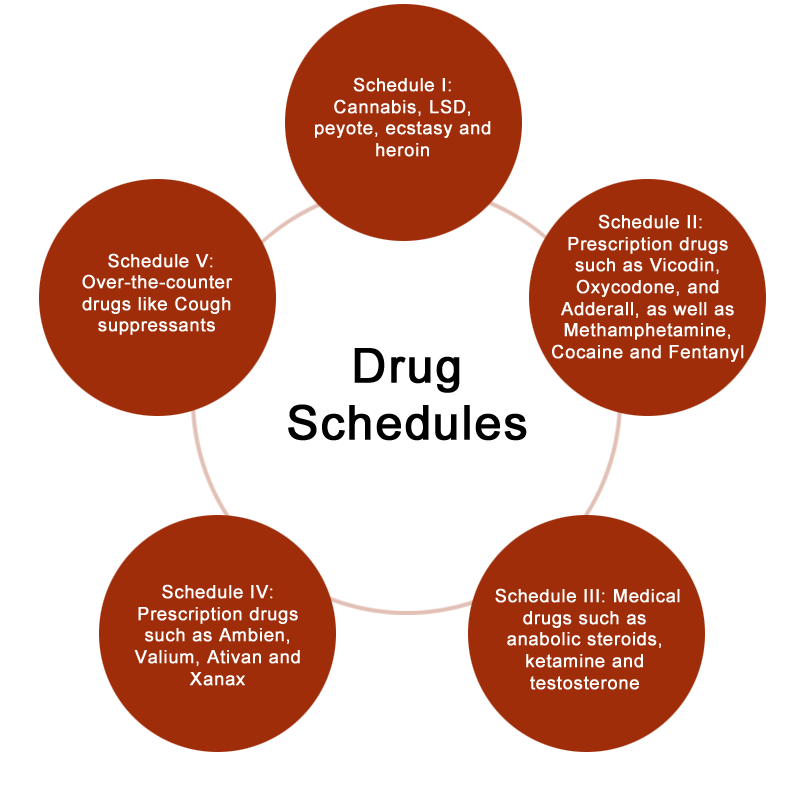The laws surrounding controlled substances can vary greatly depending on both the type of controlled substance (meaning where it stands on the “schedule” of drugs) and the amount that the accused was found to possess. Considered a felony in the State of Georgia, possession with intent to distribute is a charge directed at those found to be in possession of large amounts of a controlled substance.
The text of this law, O.C.G.A. § 16-13-310(a), states that it is, “unlawful for any person to manufacture, deliver, distribute, dispense, administer, sell, or possess with intent to distribute any controlled substance.” There are two key components that the prosecution must show in order to charge someone with possession with intent to distribute, which can be defined as follows.

Possession Types
Under Georgia law, possession is not necessarily as cut-and-dry as simply having drugs or controlled substances on your person. From a legal standpoint, you are considered in possession simply by being in the possession of a substance or being in physical control of it. This is typically broken down into the following classifications:
- Actual Possession: Having an illegal substance on your person in some manner, whether in hand or a pocket.
- Constructive Possession: Having an illegal substance that isn’t necessarily in your physical possession, such as in your home or vehicle.
- Joint Constructive Possession: This occurs when two or more people are found to be in constructive possession of an illegal substance. As that possession is shared via “dominion and control,” so are the charges.
Intent to Distribute
As the name implies, intent to distribute means that the accused has been found in possession of an amount of illegal substances beyond what they could reasonably be holding for personal use. A more serious crime than simple possession, a prosecutor can charge someone with intent to distribute simply by showing indicators that the accused might be selling. This could include phone or chat records showing conversations with customers, large quantities of cash on hand or materials used in the packaging of drugs.
Prosecutors and law enforcement have several means at their disposal in securing a conviction for possession with intent to distribute. Their ultimate goal is to prove beyond a reasonable doubt that the accused planned on selling the substance in question through direct evidence or through circumstantial evidence such as constructive possession, the quantity of drugs in question, the area in which the arrest took place and whether any cash or weapons were found at the time of the arrest.
If they are successful in securing a conviction, some of the biggest factors in sentencing will include the amount found in the defendant’s possession, any paraphernalia found at the time and their prior history. Another large factor at play will be the type of substance.

Drug Schedules
Based on their potential for abuse, drugs are generally classified into one of five schedules, with schedule I drugs being those that present the most danger. Drugs on these schedules include:
- Schedule I Drugs: Heroin (diacetylmorphine), LSD (Lysergic acid diethylamide), Marijuana (cannabis, THC), Mescaline (Peyote), MDMA (3,4-methylenedioxymethamphetamine or “ecstasy”), GHB (gamma-hydroxybutyric acid), Ecstasy (MDMA or 3,4-Methylenedioxymethamphetamine), Psilocybin (mushrooms”), Synthetic marijuana and analogs (Spice, K2), Methaqualone (Quaalude), Khat (Cathinone, Cathine), Bath Salts (3,4-methylenedioxypyrovalerone or MDPV).
- Schedule II Drugs: Prescription drugs such as Vicodin, oxycodone, and Adderall, as well as methamphetamine, cocaine and fentanyl
- Schedule III: Medical drugs such as Tylenol with codeine, ketamine, anabolic steroids, testosterone
- Schedule IV: Prescription drugs such as Ambien, Valium, Ativan and Xanax
- Schedule V: Over-the-counter drugs like Cough suppressants
The schedules alone do not tell the whole story, however. Cannabis, for example, carries a prison sentence between 1-10 years for a first offense, but another schedule I drug, heroin, carries a sentence of 5-30 years. Cocaine carries a sentence between 5-30 years, despite being on a lower schedule than cannabis. And methamphetamine, a schedule II drug like cocaine, carries with it the additional charge of trafficking if the defendant is found with more than 28 grams.
All of these sentences are first offenses, it’s worth noting. Send, third or fourth offenses will bring significantly higher sentencing, with the possibility of life in some cases. And all of them carry the additional consequences of a felony conviction – loss of voting and second amendment rights, rescinded access to driving privilege and public assistance benefits and loss of child custody.

Defending Your Rights
If you have been charged with intent to distribute, you need to take these charges seriously and begin working on your defense. At Busbee Law Group, we have a proven history of winning cases just like yours, defending your freedoms with dedication and knowledge and helping regain your rights. Some of our most successful strategies include:
- Proving the substances were not in your possession
- Establishing that mistakes were made in identifying you as the culprit
- Showing the substance in question was legal
- Demonstrating that your Constitutional rights were violated, that police errors render the arrest void or that you were entrapped.
But the most successful strategy is the one that defines everything we do at Busbee Law Group: knowing more than the other side. We dig deep into your case with an independent investigation that locates witnesses and evidence to exonerate you and ultimately see your charges reduced or dismissed. Being accused does not mean you are guilty. Submit your contact information below to schedule your confidential, no-obligation consultation today.
